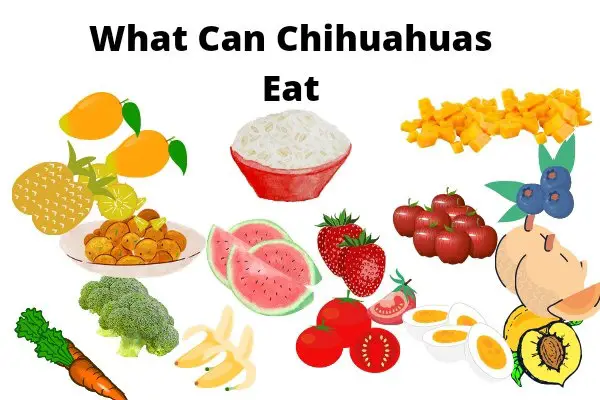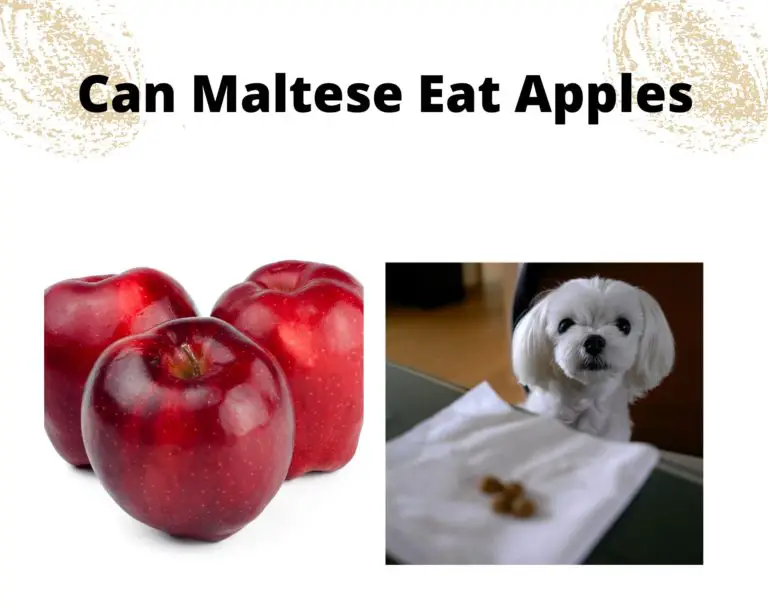12 Top Importance of Proper Nutrition for Dogs

In this blog post, we’ll explore the importance of proper nutrition for dogs and how feeding your pup the right foods can lead to a happier, healthier life.
As a dog owner, you want your furry friend to live a long and healthy life. But did you know that one of the most important factors in keeping your dog healthy is proper nutrition?
Just like humans, dogs need a balanced diet to thrive, let’s discuss this…
What Makes Up a Balanced Diet for Dogs?
A balanced diet for dogs should include whole-food ingredients such as fresh and raw meats, fruits, and vegetables.
It should also contain essential nutrients such as proteins, fats, carbohydrates, minerals, vitamins, essential amino acids, and specific essential fatty acids.
The amount of food and the specific nutrients needed may vary depending on the dog’s age, breed, size, and activity level.
It is important to consult with a veterinarian to determine the appropriate diet for your dog.
Importance of Proper Nutrition for Dogs

Proper nutrition is crucial for the overall health and well-being of dogs.
Here are some common reasons why proper nutrition is important for dogs:
1. Helps to prevent nutritional deficiencies in dogs
Nutritional deficiencies in dogs, which can cause a number of health issues, are prevented by feeding them a balanced diet that contains the proper proportion of important elements.
When a dog’s diet lacks one or more vital components, such as vitamins or minerals, nutritional deficiencies can develop.
Many health issues, such as anemia, immune system weakness, stunted growth, and poor coat and skin health, may result from this.
Dogs can acquire all the vital nutrients they require to promote their health and well-being by being fed a balanced and comprehensive diet.
2. Helps to promote strong bones in dogs
Dogs with strong bones are less likely to experience bone-related health issues like fractures and osteoporosis thanks to proper diet.
A proper meal high in calcium, phosphorus, and other necessary minerals helps support the development and health of dogs’ bones.
Moreover, dogs can benefit from frequent exercise and weight-bearing activities like running and walking.
3. Helps provides lots of energy in dogs
Energy is one of the most common benefits of proper nutrition for dogs because dogs get the energy they need from proper nutrition to keep active and healthy.
For all of their everyday activities, including walking, running, playing, and even sleeping, dogs need energy.
For energetic breeds and working dogs in particular, a diet strong in high-quality proteins and carbs can help dogs maintain their energy levels throughout the day.
4. Helps promotes healthy weight in dogs
The appropriate number of nutrients in a balanced diet assists dogs maintain a healthy weight.
This in turn helps prevent several health issues like joint pain, heart disease, and diabetes.
Obesity is a prevalent issue in dogs, especially in older or less active canines.
To keep a dog within a healthy weight range, it is important to carefully check its weight and, if necessary, make dietary changes.
5. Helps to support a healthy immune system in dogs
A healthy immune system can aid in the prevention of infections and diseases, and proper nutrition promotes this.
The immune system of a dog is in charge of warding off dangerous germs that might result in diseases and infections.
An immune system that is strengthened by food high in antioxidants, vitamins, and minerals can help a dog fight against diseases and infections.
A strong immune system in dogs can also aid in reducing inflammation and advancing general health and well-being.
6. Helps to promote healthy skin and coat in dogs
In order to support good skin and coat in dogs, a healthy diet that contains the proper ratio of nutrients and necessary fatty acids is important.
The skin and coat of a dog act as a barrier against the elements and are crucial for controlling body temperature.
An essential fatty acid-deficient diet can result in dry, itchy skin and a dull coat, whereas an essential fatty acid-rich diet can help keep a dog’s skin and coat healthy and lustrous.
7. Helps maintain healthy teeth and gums in dogs
A dog’s teeth and gums are kept healthy by a balanced meal that has the proper texture and consistency.
Plaque and tartar can be removed from teeth by chewing on hard, abrasive items like raw bones and carrots, whereas soft foods can attach to teeth and encourage bacterial development.
For dogs to keep healthy teeth and gums, a balanced diet and routine
8. Helps promotes healthy digestion in dogs
Healthy digestion in dogs is supported by proper nutrition, which can stop digestive issues including diarrhea and constipation.
A strong digestive system is crucial for overall health and well-being in dogs because it breaks down food and helps the body absorb nutrients.
A diet that is high in fiber can support good digestion and help regulate bowel movements, whereas a diet that is low in fiber might cause digestive issues.
9. Helps to support muscle development in dogs
Dogs’ overall health and fitness depend heavily on their ability to strengthen their muscles, which is supported by a diet that contains the proper ratio of proteins, vitamins, and minerals.
Because it offers the building blocks for muscular tissue, protein is particularly crucial for the growth of muscles.
The development and health of muscles also depend on vitamins and minerals like calcium and phosphorus.
10. Helps manage chronic health conditions in dogs
Diabetes, kidney disease, and heart disease are just a few of the chronic health concerns that proper nutrition can help dogs manage.
Dogs with chronic medical issues may need special diets catered to their individual requirements.
Dogs with diabetes, for instance, could need a diet low in carbohydrates, but dogs with kidney illnesses might need a diet low in protein.
Pet owners may assist control their dog’s health concerns and enhance their quality of life by giving them the proper nourishment.
11. Helps improve the overall quality of life in dogs
A balanced diet can enhance a dog’s quality of life and is necessary for their general health and well-being.
A wholesome diet can aid in the prevention or management of health issues, lower the chance of developing chronic illnesses, and support a healthy weight, healthy skin and coat, and a healthy digestive system.
A well-fed dog is also more likely to have the strength and energy to participate in daily activities with their family, which raises its level of pleasure and quality of life in general.
12. Helps promotes healthy brain in dogs
Better memory, focus, and learning abilities can be encouraged in dogs by a balanced diet that supports cognitive function and brain health.
Omega-3 fatty acids and antioxidants are two nutrients that are particularly crucial for canine brain function.
These vitamins and minerals enhance optimal cognitive function, lower inflammation, and safeguard brain cells.
Common Nutritional Mistakes to Avoid With Your Dog
The following are some common nutritional mistakes to avoid when feeding your dog:
- Overfeeding: Feeding your dog too much food can lead to obesity, which can lead to a host of health problems such as diabetes, heart disease, and joint problems. Consult with your veterinarian to determine the appropriate amount of food to feed your dog based on its breed, size, and activity level.
- Not measuring portions: Eye-balling portions or using a “guestimation” method can result in overfeeding, which as mentioned above, can lead to obesity. Use a measuring cup or kitchen scale to ensure accurate portion sizes.
- Feeding table scraps and human food: While it may be tempting to share your food with your furry friend, many human foods are toxic to dogs, and feeding dog scraps can lead to a nutritional imbalance. Stick to a high-quality commercial dog food or consult with your veterinarian for recommendations for a homemade diet that provides proper nutrition.
- Feeding too many treats: Treats should only make up a small portion of your dog’s diet. Overfeeding treats can lead to obesity, digestive issues, and behavioral problems.
- Not checking for recalls: Stay informed about dog food recalls and check any new brands or products for recalls before feeding them to your dog.
- Not providing enough fresh water: Access to fresh water is essential for your dog’s health. Make sure your dog always has access to clean, fresh water.
- Feeding inappropriate human foods: Many human foods such as chocolate, onions, garlic, and avocados, are toxic to dogs and can have serious health consequences.
- Not considering age or health: Different dogs have different nutritional requirements based on their age, breed, and health status. Consult with your veterinarian to determine the best diet for your dog’s specific needs.
- Not transitioning to a new food gradually: Suddenly switching your dog’s food can cause gastrointestinal upset. Gradually transition them to new food over the course of a week or two to avoid digestive upset.
How to choose the right food for your dog
Here are some general tips to consider:
- Talk to your veterinarian: Your vet can provide guidance on the appropriate ingredients and amounts of food for your dog’s life stage and breed.
- Do your research: Look for high-quality dog food that contains a balance of protein, fats, and carbohydrates, as well as essential vitamins and nutrients.
- Read the labels: Look for foods that are labeled “complete and balanced,” and check the ingredient list for high-quality sources of protein and whole food ingredients like vegetables and fruits.
- Consider the ingredients: Look for high-quality dry dog food that contains appropriate ingredients for your dog’s life stage and breed. Whole food ingredients like vegetables, fresh meats, fruits, and grains are generally better than processed fillers.
- Consider your dog’s specific needs: Some dogs may require a special diet due to health conditions or allergies, so it’s important to take those into account when choosing food.
- Evaluate the protein content: Ensure that the food contains at least 18% protein, as it’s a critical part of a well-balanced dog diet.
- Beware of marketing claims: Don’t be swayed by buzzwords on packaging like “holistic” or “natural.” Instead, focus on the ingredients and nutritional content of the food.
Frequently Asked Questions
Why is nutrition important for dogs?
Proper nutrition is essential for the overall health and well-being of dogs.
It helps maintain a healthy weight, supports immune system function, promotes muscle development, and can even affect a dog’s behavior.
What are the key nutrients that dogs need in their diet?
Dogs need a balanced diet that contains protein, carbohydrates, fats, vitamins, and minerals.
The specific amounts and ratios of these nutrients will depend on the dog’s age, size, and activity level.
Can I just feed my dog table scraps and leftovers?
No, feeding your dog table scraps and leftovers is not a balanced or healthy way to provide nutrition.
These items may contain too much fat, salt, or sugar, and may lack essential nutrients that are critical for your dog’s health.
Are there specific foods that dogs should avoid?
Yes, some foods can be toxic to dogs and should be avoided, such as chocolate, onions, grapes, and raisins.
Additionally, some dogs may have food allergies or sensitivities to certain ingredients, so it’s important to consult with a veterinarian about your dog’s specific dietary needs.
How can I tell if my dog is getting the right amount of nutrition?
Monitoring your dog’s weight, coat condition, energy level, and overall health can indicate whether they are getting the right amount of nutrition.
Regular check-ups with a veterinarian can also help identify any nutritional deficiencies or imbalances.
Can I make my dog’s food at home?
Yes, it is possible to make a nutritionally balanced diet for your dog at home, but it requires careful planning and consultation with a veterinarian or veterinary nutritionist.
Homemade dog food must provide all the necessary nutrients in the right amounts and balance, so it’s important to follow a recipe or consult with a professional.
Conclusion
In conclusion, proper nutrition is crucial for the health and well-being of our furry friends.
By providing them with a balanced diet and monitoring their food intake, we can ensure that they live long and happy lives.
Remember to consult with your veterinarian and do your research to find the best food options for your dog’s specific needs.
With a little effort and care, we can give our dogs the nutrition they deserve and enjoy many happy years together.
So, let’s raise a bowl for our loyal companions and their health!






